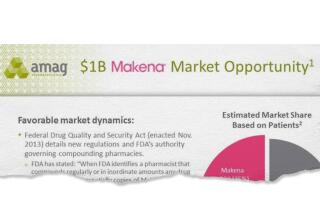FDA Approves Restricted Use of Thalidomide
- Share via
WASHINGTON — Four decades after the drug thalidomide caused a wave of horrific birth defects in other countries, the Food and Drug Administration on Thursday approved it for restricted use in the United States, warning that “unprecedented” controls will be imposed to ensure that its dreadful history is not repeated.
The agency approved it only to treat a side effect of the rarely occurring Hansen’s disease, or leprosy. The action marks the first time the drug has been licensed for use here.
The licensing comes after several years of growing data about its usefulness in treating a range of ailments but the FDA has carefully considered conditions of approval, mindful of the drug’s infamous past.
Just the name thalidomide conjures up images of children born with flippers instead of normal limbs in such countries as England, West Germany and Canada, where, in the late 1950s, the drug was widely prescribed as both a tranquilizer and a treatment for morning sickness.
Before the drug was identified as a cause of the deformities, its manufacturer sought approval in the United States. But in 1961, Dr. Frances Kelsey, a newly arrived FDA medical officer, held it up, prompted by concerns over the company’s research data, and the drug never made it to the market here.
But in recent years, researchers have discovered new and potentially therapeutic applications for the drug. In addition to its use in leprosy cases, it has shown promise in treating painful mouth ulcers and body wasting associated with AIDS, glaucoma, lupus, certain cancers and a chronic rejection state that can be deadly in bone marrow transplantation.
Critics fear that more birth defects are inevitable, regardless of controls put on thalidomide use. But they also acknowledge that use of the drug also is inevitable, given its apparent value for several disorders.
“This is a somber day,” said Randolph Warren, a Canadian thalidomide victim who heads his country’s Thalidomide Victims Assn. He added: “[We] have never wavered from our initial position of never accepting a world with thalidomide in it.”
He described his organization as “forced to prefer licensing of the drug” as preferable to widespread illegal use through underground buyers’ clubs, which flourish among AIDS and other patient advocacy groups.
Usually any drug, once licensed, can be prescribed by a physician for any purpose, a reality that is likely to fuel fears about thalidomide’s use. But the FDA said it will restrict thalidomide’s distribution and require patient registration, contraception and a special education program for physicians.
“Because of its well-known potential for causing birth defects, thalidomide will be among the most tightly restricted drugs ever to be marketed,” the agency said in a statement.
Only physicians registered in that program will be allowed to prescribe the drug, the agency said.
Women will be warned not to become pregnant while taking thalidomide or within a month after stopping the drug and will only be permitted to receive the drug after a negative pregnancy test.
Moreover, during the first month of thalidomide therapy, women must undergo repeat pregnancy tests every week. Thereafter, they will be tested monthly before every refill, or every two weeks if they have irregular menstrual cycles.
Physicians will be required to describe thalidomide’s dangers in detail to prospective patients--including having them view videos and photos of thalidomide victims--and ensure that they are educated about effective contraception.
Thalidomide eases the symptoms of erythema nodosum leprosum, or ENL, a serious inflammatory condition that afflicts Hansen’s disease patients. It has been used under special legal arrangement with the FDA for more than 30 years to treat the small number of leprosy patients in the United States, as well as those in other countries.
The drug will be marketed as Thalomid by Celgene Corp., of Warren, N.J.




